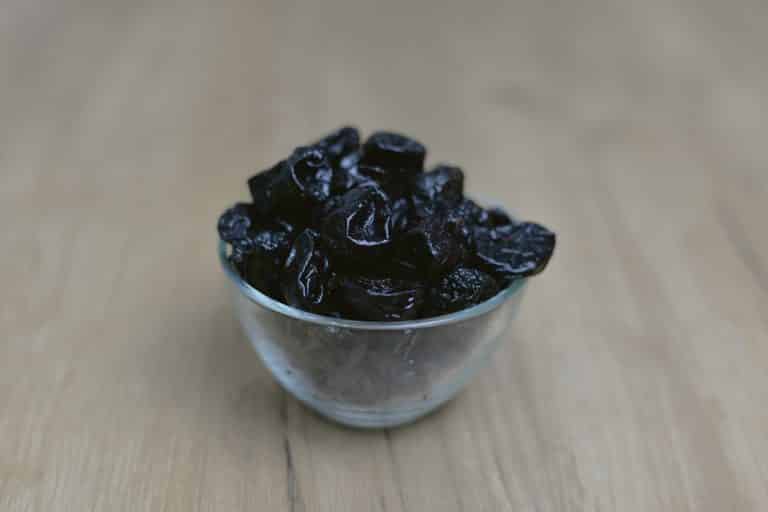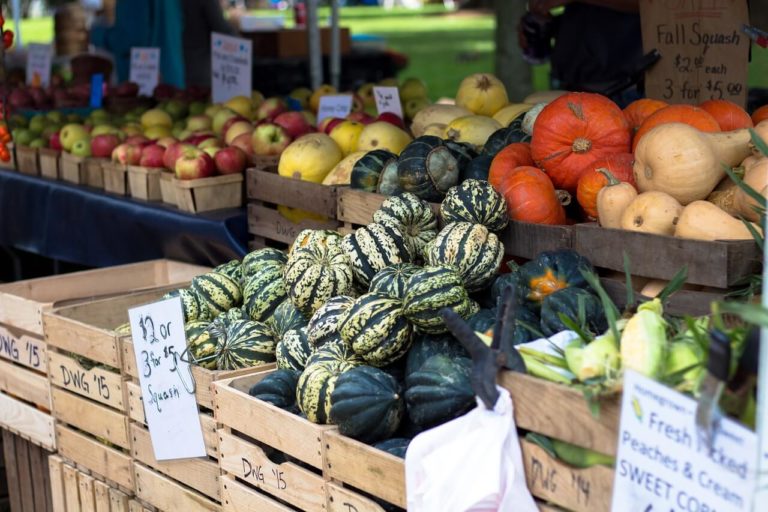While the flesh of prunes is not toxic to your dog – due to the high sugar levels, presence of toxic cyanide in the pits and the difficulty of digesting dried prunes – we recommend that you do not feed your dogs prunes.
What are prunes?
A ‘prune’ is a name for a dried plum. Usually a special type of plum, grown specifically for prune production, it is harvested from its tree and dried in a dehydrator or oven. Prunes can be found in your local grocery store with the pits intact or removed for convenience. For us humans, prunes make a great snack and can help with our bowel movements as they are a good source of dietary fiber. They can be eaten on their own, with other dried fruits and nuts (in a trail mix), blended in a smoothie or even used in baking.
What’s in a prune?
A typical plum can contain over 80% water, while prunes can contain much less, at around 30%. Thus per 100g of product, prunes contain many more calories and much more sugar and fiber than a raw plum. A raw plum contains around 46 calories, 10g of sugar and 1.4g of dietary fiber per 100g of fruit. This is compared to 240 calories, 38g of sugar and 7g of dietary fiber per 100g for prunes. That’s almost 5 times the calories and 4 times the sugar in a prune vs a plum!
A lot of store bought prunes have had their pits removed, however you may come across some with their pits still inside. The pit in a prune contains the seed. It can be hard and sharp. The pits of stone fruits such as cherries, peaches and plums naturally contain cyanide. Cyanide is toxic to humans and dogs, and can be very dangerous in the right quantities. As prunes are dried plums, there may still be trace amounts of cyanide left within the pit of the prune.
Are prunes bad for dogs?

Because prunes are a dehydrated plum, they have low water content and can be hard to digest for your dog. And because of the high concentration of calories and sugars they may also lead to weight gain and issues such as diabetes down the track. The high fiber content may also be too much for your pet’s digestive system to handle – causing discomfort and pain.
Additionally, the pit of the prune (if present) can be a choking hazard. The pits are hard and can be sharp, which is dangerous if swallowed. They can also damage the digestive system of your dog and cause blockages, which can be a big problem. Furthermore, prune pits may also contain traces of cyanide which is poisonous to both humans and dogs.
Are prunes good for dogs?
Due to the many properties of the prune we have discussed above, the answer is no – prunes are not good for dogs. The flesh of the prune is non-toxic to dogs – however it doesn’t necessarily mean that prunes are good for dogs either. We think the cons outweigh the pros of a dog eating prunes, so recommend you avoid feeding prunes to them at all.
Conclusion
Due to the many disadvantages of feeding your dog prunes, we believe you should avoid feeding them to your pet. The dried flesh may be difficult for your dog to digest, and the high sugar levels are a concern. And that’s not to mention the pits themselves, which have their own dangers when swallowed. For a healthy snack your dog will love, why not try apples or carrots instead? Provided they are given in moderation, of course!




